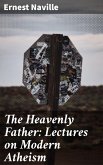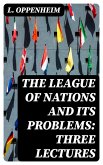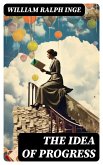In 'The Heavenly Father: Lectures on Modern Atheism,' Ernest Naville delves into the theological and philosophical discourse surrounding the presence of atheistic thought in the cultural milieu of his time. This collection of lectures offers a rigorous examination of the implications of atheism on society and individual morality. Naville's eloquent prose and systematic approach provide readers with an in-depth analysis while situating the work within the broader context of religious debate during the late 19th century. Emphasizing reason and spiritual contemplation, 'The Heavenly Father' maintains a pertinent position in the historical conversation between faith and secularism. As a devout Protestant thinker, Naville was deeply influenced by his commitment to spirituality and the pressing concerns of modern skepticism. His insights are informed by a keen observation of the intellectual trends that stem from Enlightenment thinking and the subsequent rise of secular philosophies. Naville's erudition and dedication to defending theistic perspectives render his works both timeless and intellectually robust, providing a thoughtful voice against the grain of contemporary secular narratives. 'The Heavenly Father: Lectures on Modern Atheism' is recommended for those interested in the intersection of religion, philosophy, and history. Scholars and lay readers alike will find Naville's treatise a compelling journey through the challenges posed by atheism to theistic traditions. His work serves not only as a rebuttal to atheist arguments but also as a testament to the enduring relevance of theological discourse in understanding the human condition and the quest for meaning.
Dieser Download kann aus rechtlichen Gründen nur mit Rechnungsadresse in A, B, BG, CY, CZ, D, DK, EW, E, FIN, F, GR, H, IRL, I, LT, L, LR, M, NL, PL, P, R, S, SLO, SK ausgeliefert werden.









